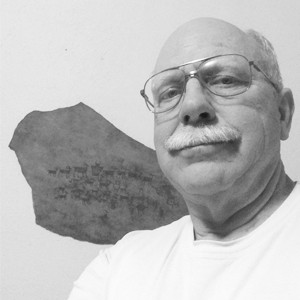
 In the early 20th century, archaeologists in the southwestern U.S. viewed a constellation of distinctive cultural traits – multicolored pottery, houses arranged in walled compounds, and monumental architecture – as evidence of a cultural group they termed “Salado.” Subsequent discoveries cause us to question what the Salado traits really represent. In this presentation archaeologist Allen Dart illustrates some of the so-called Salado culture attributes, reviews theories about Salado origins, and discusses how Salado relates to the Ancestral Pueblo, Mogollon, Hohokam, and Casa Grandes cultures of the U.S. Southwest and Mexico’s Northwest.
In the early 20th century, archaeologists in the southwestern U.S. viewed a constellation of distinctive cultural traits – multicolored pottery, houses arranged in walled compounds, and monumental architecture – as evidence of a cultural group they termed “Salado.” Subsequent discoveries cause us to question what the Salado traits really represent. In this presentation archaeologist Allen Dart illustrates some of the so-called Salado culture attributes, reviews theories about Salado origins, and discusses how Salado relates to the Ancestral Pueblo, Mogollon, Hohokam, and Casa Grandes cultures of the U.S. Southwest and Mexico’s Northwest.
Allen Dart is a Registered Professional Archaeologist who has worked in Arizona and New Mexico since 1975 and has been an Arizona Humanities speaker since 1997. He is the former executive director of Tucson’s nonprofit Old Pueblo Archaeology Center, which he founded in 1993 to provide educational and scientific programs in archaeology, history, and cultures. Al has received the Arizona Governor’s Archaeology Advisory Commission Award in Public Archaeology, the Arizona Archaeological Society’s Professional Archaeologist of the Year Award, and the Arizona Archaeological and Historical Society’s Victor R. Stoner Award for his efforts to bring archaeology and history to the public.
Notifications